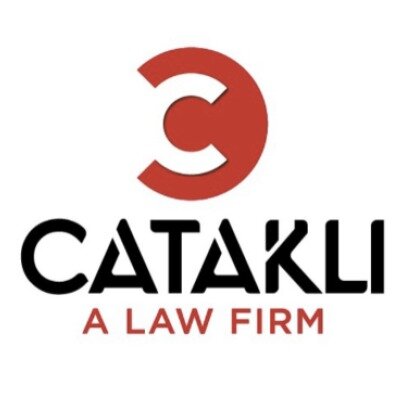Best Tax Increment Financing Lawyers in Luxembourg
Share your needs with us, get contacted by law firms.
Free. Takes 2 min.
Or refine your search by selecting a city:
List of the best lawyers in Luxembourg
About Tax Increment Financing Law in Luxembourg
Tax Increment Financing (TIF) is a public financing method that is used as a subsidy for redevelopment, infrastructure, and other community-improvement projects. In Luxembourg, TIF is becoming a more utilized strategy for urban development and revitalization, allowing local governments to stimulate economic growth in specific areas. TIF works by allocating future tax revenues generated by the increase in property values to finance the initial improvements, effectively paying for the project over time without directly impacting taxpayers.
Why You May Need a Lawyer
Engaging a lawyer experienced in Tax Increment Financing in Luxembourg can be crucial for several reasons:
- Understanding Complex Legislation: The legal framework around TIF can be complicated, requiring tailored guidance to navigate effectively.
- Project Development: Lawyers can help in structuring TIF deals and ensuring compliance with local laws, regulations, and public policy requirements.
- Resolving Disputes: They can aid in resolving any disputes that arise between developers, municipalities, and other parties involved in TIF projects.
- Cost-Benefit Analysis: Legal advisors help assess the financial implications, ensuring that TIF is a viable and beneficial option for the projects in question.
Local Laws Overview
In Luxembourg, the legal environment for Tax Increment Financing is influenced by several key factors:
- Regulatory Framework: Luxembourg's regulatory framework provides guidance on how TIF projects can be implemented, including stipulations on eligible projects and how funds can be allocated.
- Municipal Authority: Local governments have significant authority in approving TIF projects, making it essential to engage with municipal officials as part of the process.
- Tax Law: Luxembourg's tax regulations play a significant role in determining how TIF is effectively managed and how the tax increment is calculated and utilized.
- Environmental Considerations: Any TIF project may need to address environmental concerns, adhering to both national and EU-level environmental directives.
Frequently Asked Questions
What is Tax Increment Financing used for in Luxembourg?
TIF is typically used to fund public infrastructure improvements, such as roads, bridges, and utilities, that support private development projects and encourage economic growth in designated areas.
How is a TIF district established?
A TIF district is established by a local government, which designates an area for economic development and outlines the projects that will be financed through TIF.
Who can initiate a TIF project?
Local government authorities typically initiate TIF projects, often in collaboration with private developers or other stakeholders.
What are the benefits of TIF for communities?
TIF can stimulate economic development, increase property values, enhance public infrastructure, and attract private investment without burdening the taxpayers.
How are TIF funds generated?
TIF funds are generated through the increased property tax revenues that result from the enhanced property values following the completion of development projects.
Are there any risks associated with TIF?
Risks can include project failure, insufficient tax revenue increases to cover costs, and potential displacement of existing residents or businesses.
Can TIF funds be used for private projects?
Generally, TIF funds are used for public improvements, but these enhancements often support adjacent private developments.
How does TIF affect taxpayers?
Ideally, TIF does not directly impact taxpayers, as it finances improvements through future tax increments rather than current tax dollars.
How long do TIF projects typically last?
The duration of TIF projects can vary but is often prescribed by the terms set forth in the initial project agreement, typically ranging from 10 to 25 years.
Is legal advice necessary for TIF engagement?
Legal advice is highly recommended to ensure compliance, proper structuring, and to optimize the outcomes of TIF projects for all parties involved.
Additional Resources
For further information and support on Tax Increment Financing in Luxembourg, consider these resources:
- Ministry of the Economy of Luxembourg: Offers insights into economic development strategies, including TIF-related initiatives.
- Luxembourg Chamber of Commerce: Provides resources and networking opportunities for developers and businesses interested in urban development projects.
- Local Municipal Authorities: Each municipality can offer specific guidance and information about local TIF projects and policies.
Next Steps
If you are considering engaging in or affected by a TIF initiative in Luxembourg and need legal assistance, consider the following steps:
- Identify Your Needs: Clearly define how a lawyer can support your TIF-related activities, whether it's through compliance, dispute resolution, or project structuring.
- Research and Select a Lawyer: Look for legal professionals with specialized experience in Luxembourg's TIF laws and relevant local development policies.
- Schedule a Consultation: Engage with potential lawyers through a consultation, discussing your situation and assessing their suitability for your needs.
- Prepare Necessary Documentation: Gather relevant documents, such as project proposals, financial statements, and previous correspondences to facilitate effective legal consultation.
Lawzana helps you find the best lawyers and law firms in Luxembourg through a curated and pre-screened list of qualified legal professionals. Our platform offers rankings and detailed profiles of attorneys and law firms, allowing you to compare based on practice areas, including Tax Increment Financing, experience, and client feedback.
Each profile includes a description of the firm's areas of practice, client reviews, team members and partners, year of establishment, spoken languages, office locations, contact information, social media presence, and any published articles or resources. Most firms on our platform speak English and are experienced in both local and international legal matters.
Get a quote from top-rated law firms in Luxembourg — quickly, securely, and without unnecessary hassle.
Disclaimer:
The information provided on this page is for general informational purposes only and does not constitute legal advice. While we strive to ensure the accuracy and relevance of the content, legal information may change over time, and interpretations of the law can vary. You should always consult with a qualified legal professional for advice specific to your situation.
We disclaim all liability for actions taken or not taken based on the content of this page. If you believe any information is incorrect or outdated, please contact us, and we will review and update it where appropriate.
Browse tax increment financing law firms by city in Luxembourg
Refine your search by selecting a city.















